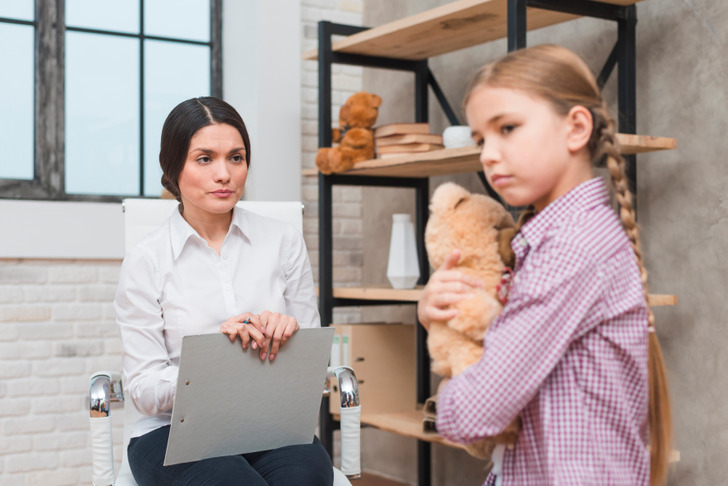I am late here but you massively overstepped!!!!!! How dare you! You toom away her privacy, her home and her father. If you were worried about safety then there was no reason to put a camera in her room, outside yes but inside her room?! My only question is, what is wrong with you?!??! You are vile and if I was Ryan I would have left with my daughter.
My Teen Stepdaughter Protests Against a Camera in Her Room, but My Comfort Comes First
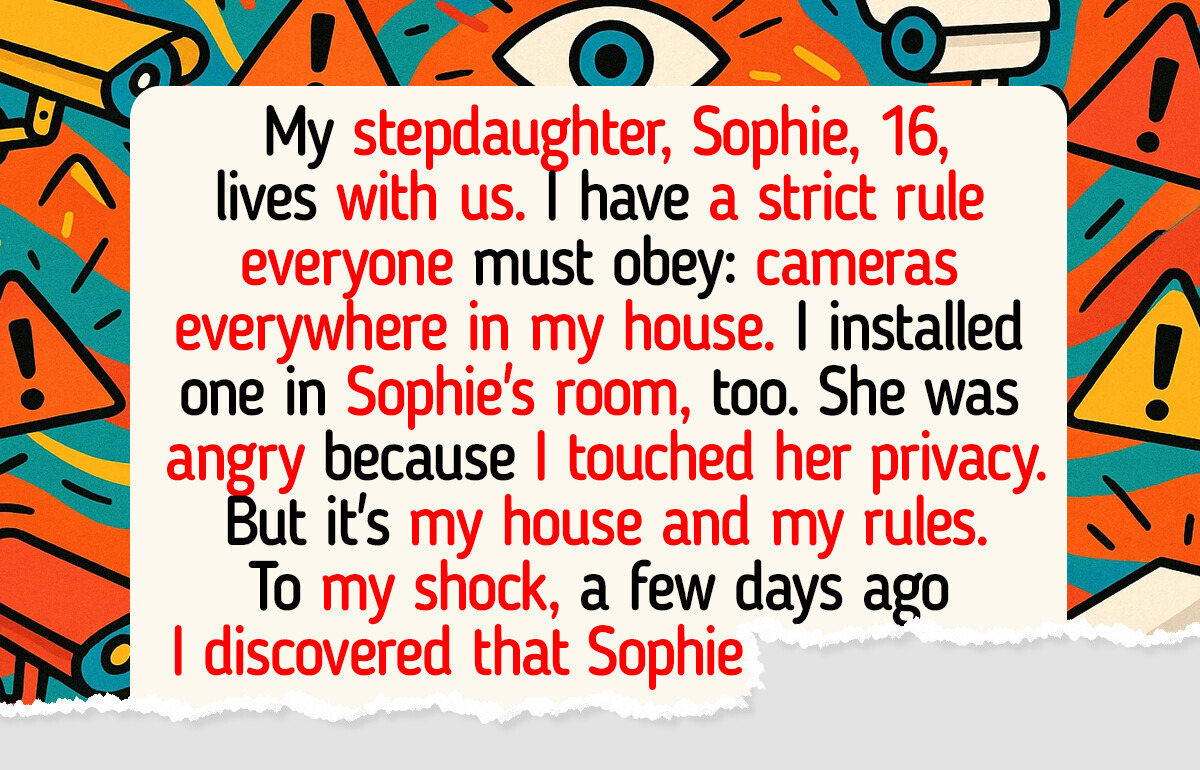
Emma is a stepmother. Cautious and protective by nature. She took it upon herself to make her home feel more secure, so she decided to install surveillance cameras.
One of those cameras ended up in her teenage stepdaughter’s bedroom. Emma insists she never meant to violate anyone’s privacy — her reasoning was safety and accountability. But when her stepdaughter found the hidden camera, the reaction wasn’t just emotional — it was volcanic. And the aftermath?
Let’s just say: Emma’s household quickly spiraled into complete chaos. Read her letter below to uncover the full, jaw-dropping story.
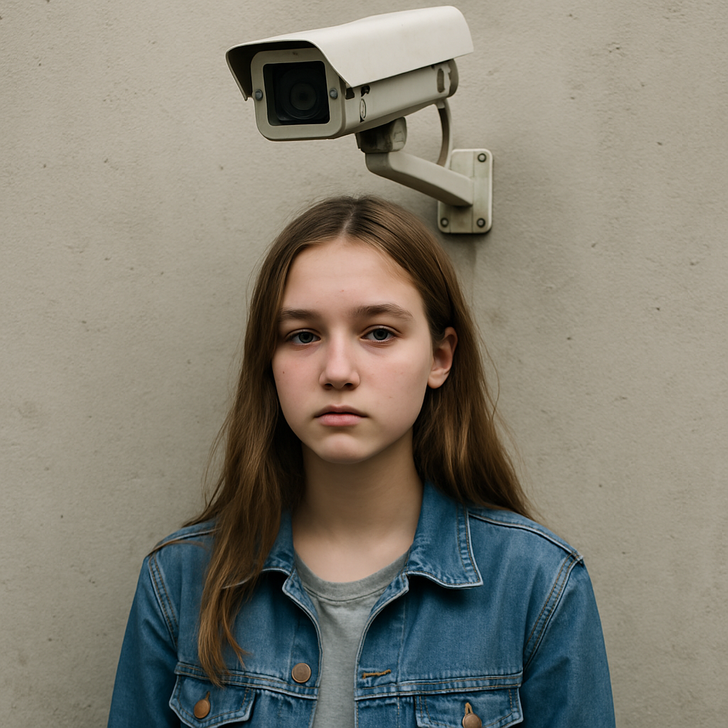
Here’s Emma’s letter:
"Hi Bright Side,
I’m married to Ryan. We’ve been building our life together for the past three years. He has a daughter, Sophie, 16 years old, sharp as a tack, headstrong, and fiercely independent. Adjusting to life as a blended family hasn’t always been smooth, but I’ve always done my best to look out for her as if she were my own.
After a series of accidents on our street and hearing strange noises near our backyard at night, I started getting nervous. To ease my fears, I decided to install a simple home security system — door sensors, motion detectors, and a few cameras.
One in the living room. One in our bedroom. One pointed at the back door.
And yes, one in Sophie’s bedroom. Cameras everywhere have become a strict rule in my house. My intention wasn’t sinister. It was about keeping everyone safe. She’s a teenager, and as we all know, teens can be unpredictable. Sometimes you just don’t know what they might get themselves into.
So I discreetly set up a small camera in her room. When Sophie discovered it, she absolutely lost it. She said I invaded her privacy, called me creepy and controlling, and accused me of treating her like some kind of criminal.
I tried to explain that my only motive was fear, that I was trying to protect her, not spy on her. But none of my words seemed to matter. She kept telling me that I’m touching her privacy. Finally, I told her firmly, “If your privacy means that much to you, you’re welcome to find somewhere else to live. My house, my territory, my rules.” She went quiet.
Then, just a week ago, I was stunned to find out that Sophie packed her things, called her grandmother, and moved out within hours — no warning, no goodbye, no discussion. Ryan was livid.
Not just because of what happened, but because of me. He said I overstepped. I don’t understand where to draw the line with teenagers. That, even if my intentions were good, putting a camera in her private space was a huge violation of trust.
Am I really in the wrong here?"
Dear Emma, thank you for your trust and for sharing your story. It stirred a lot of thoughts here at the Bright Side editorial team. Navigating step-parenting, teen privacy, and family safety is no easy puzzle. Here’s what we’d like to gently offer — not as judgment, but as a way forward.
1.What teens really need is someone to talk to — not someone watching them.
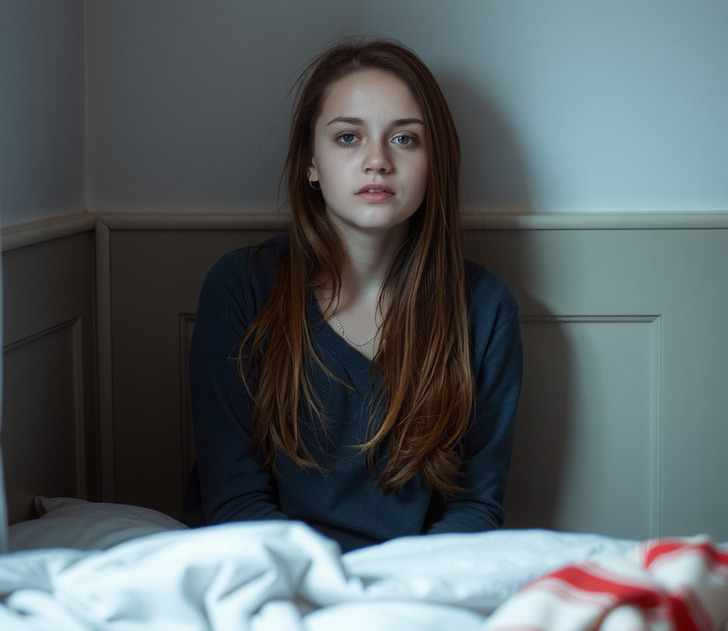
We get it — safety first. But when teenagers feel excluded from decisions that affect their personal space, even good intentions can come off as controlling. Sophie didn’t just see a camera — she saw a broken line of trust.
Bright Side Tip: Before acting, involve teens in the “why.” It’s not just more respectful — it’s more effective. Create an atmosphere where expressing feelings is appreciated. This includes both positive and negative emotions. Knowing that their feelings are valued allows family members to be more open with one another.
2. A teen’s room is their kingdom — and every kingdom needs its privacy.
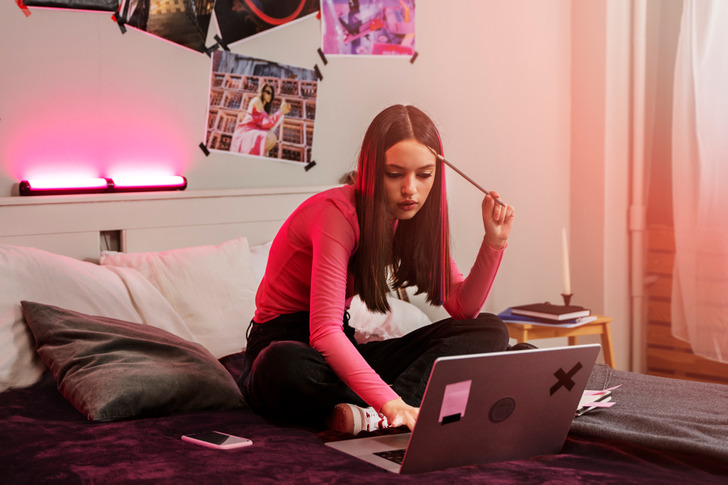
An unknown camera in my room would be grounds to trash the place. A teenage girl needs privacy. And she would OBVIOUSLY think it’s super gross to be looked at by their parents. This is definitely a no win for you here.
Yes, you were trying to keep her safe — but a teenager’s bedroom is more than just a room. It’s where they think, cry, vent, and be themselves. Even a visible camera can feel invasive in that sacred space.
Bright Side Tip: As psychologist Dr. Pamela Rutledge puts it, teenagers are wired to crave independence. Let’s help them protect their space while keeping healthy boundaries in place.
3. When a choice impacts the whole family, the whole family should have a say.
Blended families already come with complex emotions. So when one member makes a big decision unilaterally, it can stir up more than just resentment — it can reopen wounds from the past.
Bright Side Tip: According to the APA, kids who are involved in household decisions feel more respected — and that often leads to fewer conflicts later on.
4. When things spiral out of control, sometimes you need a neutral voice.
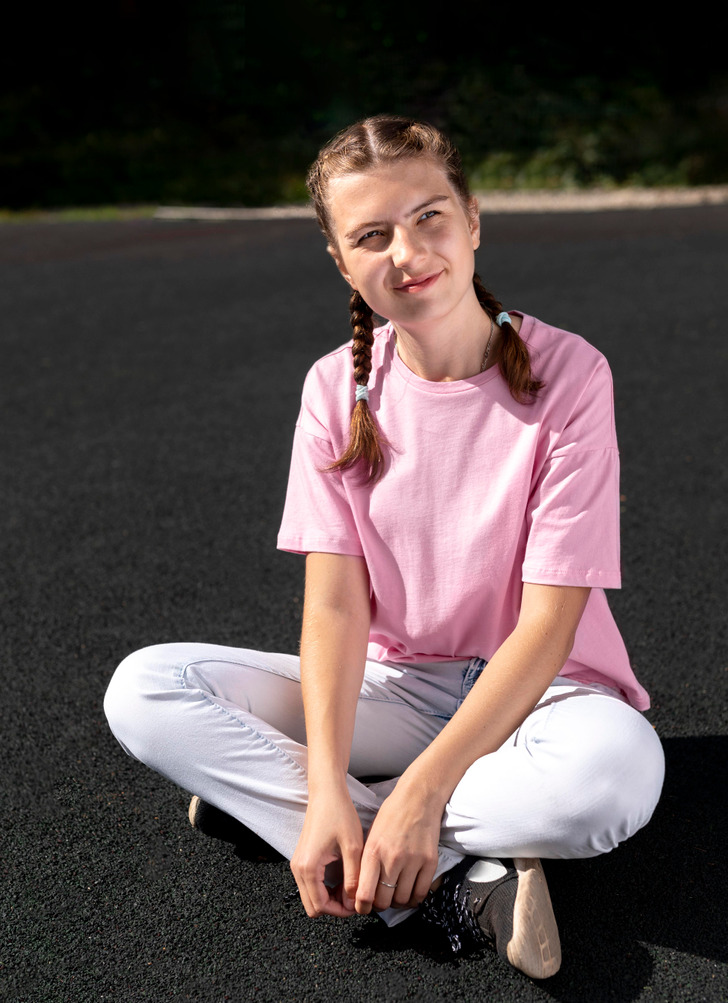
Cameras in bedrooms?! WTH. Serious invasion of privacy. Does your husband know you put one in your bedroom as well? Doubt he agreed to be watched in the supposed privacy of his own bedroom. ICK
Some issues run deeper than house rules. And sometimes, it’s not about the camera — it’s about fear, loss of control, or not feeling seen. That’s when a professional’s perspective can keep a temporary storm from becoming a permanent rift.
Bright Side Tip: There are counselors who specialize in helping blended families navigate these tricky emotional crossroads. It’s never “too early” for therapy — only too late.
Comments
you don't put cameras in peoples bedrooms, especially secret ones, unless its a baby and we are talking a baby monitor. its a major invasion of privacy, and yes even teens are entitled to that. Like, would you want someone to record or watch you say change clothes or do a more private intimate act ? no? didn't think so.
Related Reads
My Husband Humiliated Me on Our Wedding—Now I’m Questioning Our Future

I Dropped Everything to See My Grandson — My DIL Kicked Me Out Like I Was Nobody

20+ People Who Prove Outsmarting Life Is an Art Form

13 Times Stepparents Refused to Give Up on a Child Who Didn’t Want Them—Until One Moment Changed Everything

10 Dating Stories That Started Like Rom-Coms but Ended Like Horror Movies

I Gave Up My 2-Month-Old Baby for Adoption Because I Chose My Own Happiness
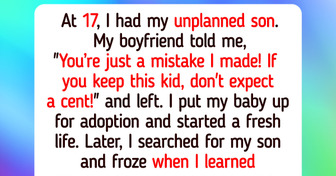
12 Small Acts of Kindness That Quietly Changed Lives
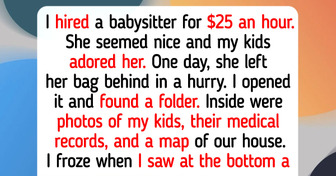
12 Times Kindness Ruled in the Office Like a Boss
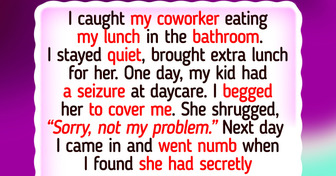
My Family Excluded My Girlfriend From Christmas Because We’re Not Married

15 Stories That Show Kindness Is a Quiet Language the World Needs
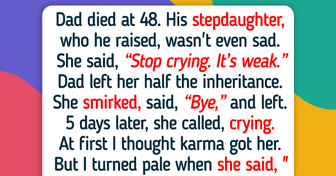
I Refused to Be Treated Like a Maid in My Own Home—So I Changed the Rules

10 Hospital Workers Who Prove Kind Heart Is a Powerful Medicine

